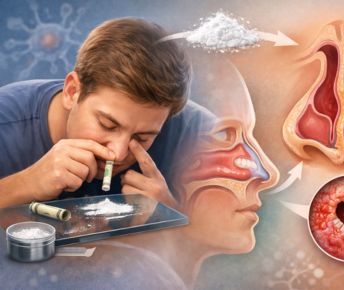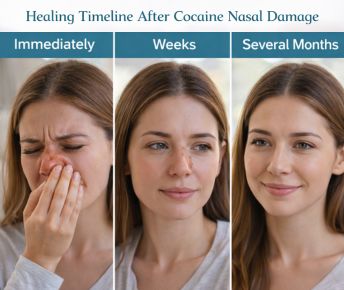Introduction
LSD is one of the most powerful and unusual psychedelic drugs we know of. It is a type of drug that changes how you perceive reality. It doesn’t just make you feel different but actually rewires how your brain processes sights, sounds, thoughts, and emotions. Some people take it looking for creativity or healing. Others take it to escape. And while LSD doesn’t cause physical addiction like heroin or alcohol, it can, at times, seriously affect mental health, especially with repeated use.
It was first made in a lab in 1938, and became widely known in the 1960s. Today, it’s getting attention not just from people who use it, but also from scientists and mental health experts. Why? Some scientists think LSD might help with mental health problems like depression, PTSD, or addiction if used carefully in a medical setting. Early research shows it could help people see things differently, feel more open, and break out of negative thinking. At the same time, more people are using LSD on their own, sometimes to feel more creative or focused.
LSD is not easy to find everywhere, but it’s still quite available in many places. It usually comes in small doses like pills, tablets, or drops on blotter paper. Because it’s illegal in most countries, including India, people often get it through underground dealers or online markets. Hence, it has quietly found its way into nightlife scenes, college dorms, and even professional circles where “microdosing” has become popular. But what effect does it have on the brain that people want to do it? Let’s find out
LSD Effects on the Brain
One of the most interesting things about LSD is how it changes the brain, especially a part called the default mode network (DMN). This network is active when we’re thinking about ourselves or reflecting on our feelings. It’s effects on the brain include temporarily turning down this network’s activity, which might explain why some people feel their sense of self fading or have “out of body” experiences during a trip. Brain scans show that LSD, which is a type of hallucinogen drug, makes different parts of the brain start talking to each other in new ways. This unusual connection could explain the vivid hallucinations people see or why some say they can “hear colors” or “see sounds” when using LSD pills or other forms. But this brain rewiring doesn’t last forever, it’s temporary. Still, using LSD often or in high doses can cause lasting changes, and some of the side effects of LSD can be harmful, especially to mental health. The effects of LSD usually begin within 30 to 90 minutes of ingestion and can last 8 to 12 hours. Here are some common short-term effects:
- Visual hallucinations (patterns, colors, or objects appearing distorted)
- Altered perception of time and space
- Enhanced sensory experiences
- Mood swings (from euphoria to anxiety)
- Confusion and disorientation
- Dilated pupils
- Increased heart rate and blood pressure
- Nausea or loss of appetite
- Tremors or dizziness
These effects vary greatly depending on the dose, your mindset, and the environment.
What Are The Side Effects of LSD?
While LSD is not physically toxic in small doses, it can have serious psychological side effects, especially in vulnerable individuals or in unsafe settings. Some of the side effects of LSD include:
- Panic attacks and extreme anxiety
- Paranoia or delusions
- Flashbacks (also known as HPPD – Hallucinogen Persisting Perception Disorder)
- Psychosis, especially in people with a family history of schizophrenia or bipolar disorder
- Difficulty distinguishing reality from hallucination
- Trouble sleeping or lingering confusion
Flashbacks can occur weeks or months after a trip, even without taking the drug again, something few people know until they experience it.
Is LSD Addictive?
Unlike substances such as heroin or alcohol, LSD is not considered physically addictive. You don’t develop physical withdrawal symptoms, and you won’t feel cravings in the traditional sense. However, psychological dependence can develop, especially in people who begin to rely on the drug to escape reality, deal with trauma, or seek “enlightenment.”
You can also quickly build a tolerance to LSD. After just a few consecutive uses, you’ll need much higher doses to feel the same effects, which significantly increases the risk of a “bad trip” or long-term mental health issues.
Also read - Drug Addiction Triggers: How to Identify and Avoid Them
The Growing Quiet Trend of LSD Use in India
In India, LSD is illegal under the Narcotic Drugs and Psychotropic Substances (NDPS) Act. Yet, despite the laws, its use is quietly on the rise. You’ll find it popping up among college students at parties, young professionals at social events, and even some startup founders trying out microdosing, taking tiny amounts to spark creativity and focus.
People usually get LSD through underground dealers or the dark web. It comes in the form of tiny pills, colorful tabs, or liquid drops. Since there’s no regulation, the strength and purity can be all over the place, which makes using it risky. Sadly, because talking about drugs is still taboo in many parts of India, LSD use often stays hidden, until it leads to bigger problems no one expected.
Are LSD Addiction Treatments Available?
Although LSD may not cause physical dependence, LSD addiction treatment focuses on psychological healing, harm reduction, and mental health support. Here's what treatment often involves:
1. Psychiatric Evaluation
Since LSD can trigger latent mental illnesses, the first step is a comprehensive psychiatric assessment to rule out or manage conditions like psychosis, anxiety disorders, or depression.
2. Cognitive Behavioral Therapy (CBT)
CBT helps individuals understand their triggers, develop healthy coping strategies, and build resilience. It’s especially effective for people who used LSD to escape reality or trauma.
3. Psychoeducation
Many users don’t fully understand how LSD affects the brain. Education helps people make informed choices and avoid risky behaviors in the future.
4. Support Groups
Group therapy or 12-step programs like Narcotics Anonymous (NA) offer peer support, which can be vital for long-term recovery.
5. Residential Rehab (in severe cases)
If LSD use has led to a mental health crisis or impaired daily functioning, a residential rehab program can offer structured care in a safe environment.
Conclusion
LSD is a powerful hallucinogen that can expand consciousness, but it also carries real risks, especially when used without guidance or in the wrong mindset. It’s not physically addictive, but psychological dependence and mental health issues are very real concerns.
If you or someone you know is struggling with LSD use, help is available. LSD addiction treatment isn’t about punishment, it’s about healing, understanding, and building a more grounded relationship with reality.
Whether you're curious, cautious, or in need of help, being informed is the first step. And that’s exactly what you’re doing right now.
Frequently Asked Questions
1. What is LSD used to treat?
LSD is being researched for treating mental health issues like depression, PTSD, and addiction under controlled medical settings. It’s not yet approved for routine medical use but shows promise in therapy.
2. What are the social effects of LSD?
LSD can increase feelings of connection and empathy but may also cause social anxiety or paranoia in some users. Effects vary widely depending on the person and setting.
3. What are the benefits of taking LSD?
Some users report enhanced creativity, deeper self-awareness, and relief from certain mental health symptoms. However, benefits are mostly from controlled, therapeutic use, not casual recreational use.
4. What regions of the brain does LSD affect?
LSD mainly affects the serotonin receptors in the brain, especially in the prefrontal cortex and the default mode network (DMN), altering perception and self-awareness.
How does acid affect the brain?
Acid (LSD) disrupts normal brain activity by changing how neurons communicate, leading to altered sensory experiences and a distorted sense of reality.
How does LSD affect hormones?
LSD can temporarily increase stress-related hormones like cortisol and adrenaline, which may contribute to increased heart rate and alertness during a trip.
























 Yes, many offer serene environments and solid therapeutic frameworks. However, quality varies, so it’s essential to research accreditation, staff credentials, and therapeutic depth.
Yes, many offer serene environments and solid therapeutic frameworks. However, quality varies, so it’s essential to research accreditation, staff credentials, and therapeutic depth.




